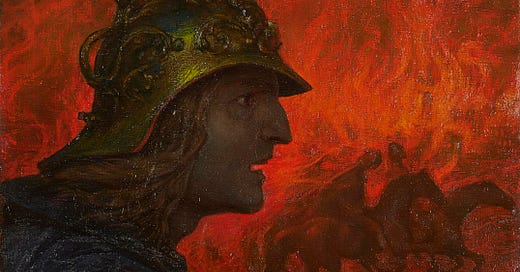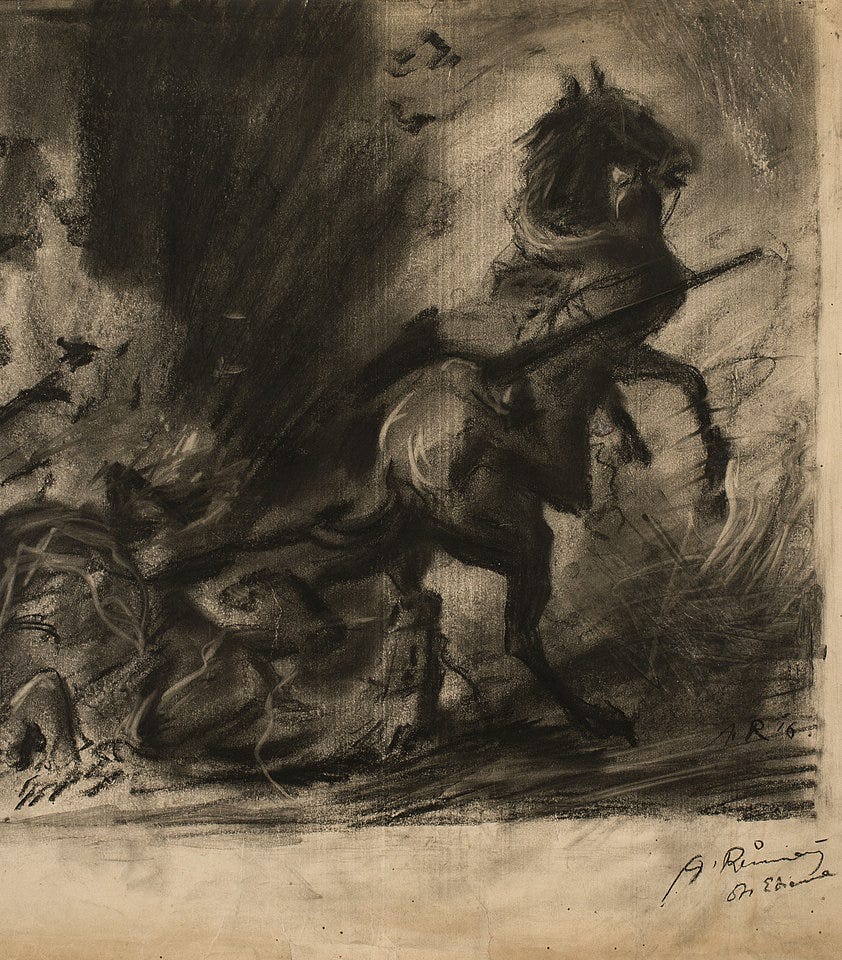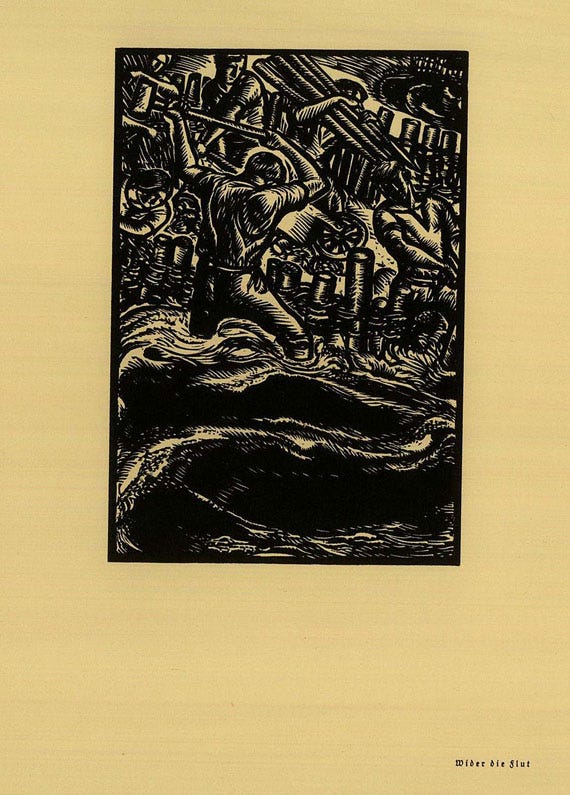Widerstand, May 1929
Ernst Jünger’s book review of Revolution um Karl Marx by Richard Bie. Of particular interest is the conflict of nationalism and socialism, as well as the relation of the worker to Marxism.
Political formation is not the first but the last stage of nationalism; it is the conclusion of a phenomenon which cannot be made but depends on growth. The beginning of nationalism is marked not by the creation of a party, nor by an enclosed programme in which old things are mixed and rearranged. Rather, this beginning resembles a germ in which the tender force of life is embodied, which draws its nourishment not from the mechanical but entirely from the organic, which takes shape not by construction but by transformation.
Struggle is the law of life; the new vision of the world changes nothing but the fronts on which this takes place. The new generation does not care for the old antagonisms; it emerges as if on its own flank and cuts through the conflicts of the fathers in a movement coming from a completely different, unexpected direction.
Thus the antagonism between socialism and nationalism is exposed such forces today. The opposition lived not only as an important element in the programmes of parties influenced by Karl Marx. It was expressed equally in the small degree of workers’ responsibility for the economic and political decisions of the nation.
The outbreak of war initiated changes in this area as well. Within a few decisive days the internationalisation of workers’ political representation was shown for what it was: a constructive demand, purely imaginary, which could not exist in the face of the realities of life. For decades Social Democracy had denied war in theory, only to affirm it in practice on the day it became necessary. It turned out that the German worker knows even more important bonds than the economic.
We saw a nation in a state of strength rarely seen in a whole generation. This vision, this experience of life itself, is the most important, the most infallible lesson that must guide our future work. It is not a question of war, not of the possibility of war, but of freeing life from its artificial channels and turning it into a full and powerful stream of efficacy.
If a great deal has changed since then, it need not concern us. We were schooled thoroughly, but perhaps our fathers were too old to return to this school. If today the national forces and social forces of the people are again in opposition, it means for us not an imbalance in the basic composition of the nation, but an imbalance in the organisation which must be eradicated through fire and blood. It means that both the people and the workers are represented by obsolete representatives. For us there is no contradiction between socialism and nationalism; they are two manifestations of the same force, one external, the other internal, each inconceivable without the other. Those who try to make concessions to one side or the other, and even those who are fundamentally conflicted, have not yet realised our position, because even the greatest firmness on both sides makes a common direction possible. There is no place in our ranks for those who distinguish between the social and the national, and with this our militant community, coming from a wide variety of camps, is very clearly distinguished from all those formations in which patriotic or libertarian phrases are fed.
In this regard, we should welcome the book Revolution um Karl Marx, whose author, Richard Bie, spares us the equally dull and unnecessary invective against historical facts. Here, the image of Karl Marx is fully appreciated from a nationalist point of view and examined from a distance that avoids enthusiasm and hatred. To dismiss a doctrine that had such influence with sentimental arguments would be as ridiculous as making patriotic proofs for the failure of Napoleon.
Instead, Bie examines Marx within the political, economic, and ideological framework of his time. Far from wanting to turn him into a bogeyman, he willingly seizes every opportunity to exploit the sphere of the man, especially in his friendship with Engels, his marriage, and his lifelong, truly soldierly renunciation in the struggle for his idea.
The value of this book lies in the sharply executed distinction between a mechanical and an organic conception of life and phenomena. This is the best way to reveal the difference between the revolution of Karl Marx and our revolution. Marx was one of the representatives of his time and its main mechanistic, rationalistic, and materialistic currents. The era worked for him, as it will continue to work against him. Therefore, it is pointless to oppose his economic critique with a counter-critique. Only in a truly living state can work also be alive. And only that work which is more than a commodity, which has a deeper life, which knows how to handle greater rights and heavier responsibilities, has meaning for us. This organic fulfillment of work, this state that is richer than duties, and at the same time more satisfying, towards which our efforts should be directed, is offered by Bie in a very remarkable conclusion to which nothing needs to be added:
“We have once again an opportunity to become enthusiastic for the nation. The foundations of emperors and popes, kings and dukes, burghers and merchants are slowly fading away. But when the gigantic co-operation of all the resources of the earth and all the industrial works, when the common use of strength, when the common pride in successes is united in the feeling of the nation into a national and social decision, when things cease to be the masters of our strife and our economic meanness, but are confined to human judgment and attached to economy, when they give us the strength which we defend by the right to space and labour, then there will come in the human realm the emancipation of economy, the construction of national politics, and the peace of our Third Reich.”







Where do you find the primary sources of these journals like Widerstand that you're translating?